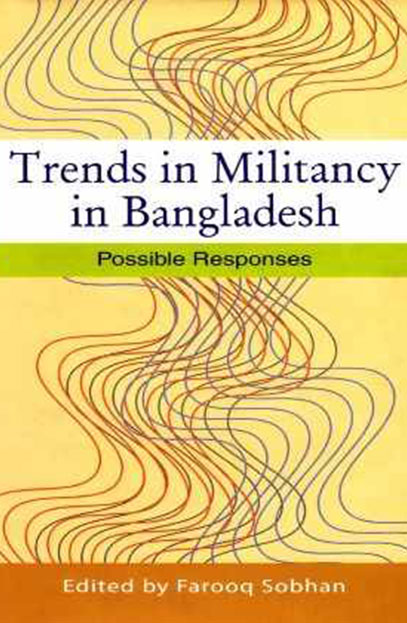
- Shop
- Security (National & International)
- Trends in Militancy in Bangladesh
Trends in Militancy in Bangladesh
Possible Responses
https://uplbooks.com/shop/9789848815175-trends-in-militancy-in-bangladesh-8302 https://uplbooks.com/web/image/product.template/8302/image_1920?unique=3d813f3
| Language: English |
Tags :
Book Info
Bangladesh has witnessed rising Islamic radicalization, extremism and militancy in various manifestations for more than 10 years. In the aftermath of 9/11, religious militancy has intensified in South Asia. The dramatic rise in terrorist activities in recent years has taken on the form of bomb explosions and suicide bombings generating fear, undermining political stability and hurting business confidence. Although there were no terrorist incidents during the immediate-past caretaker government's tenure from 2007 to 2008, militant organizations have been actively regrouping and involved in expanding the radicalization process to recruit and motivate people, particularly youth, in their ideology. Assessment drawn from recent events indicates that while the terrorist groups may have maintained a tactical silence for some time, they continue to strengthen their organizational capacities in order to pose a serious security threat to the country in the immediate future. Recent investigations reveal that the JMB remains active even after the execution of its top leaders in March 2007. This volume (outcome of the two successive day-long conferences; the first one on 28 February 2008 and the second one on 11 June 2008) undertakes a comprehensive effort to identify the real causes and trends of terrorism in Bangladesh focusing on substantive case studies and empirical evidence from across the country. The capacity of law enforcement agencies and the lapses of the present legal regime in countering terrorism are also examined in an effective manner. Finally, the book emphasizes the importance of the pivotal balancing role of civil society and the other stakeholders between mainstream and dissident's views so that a legitimacy crisis may not occur significantly in Bangladesh. The volume should be of interest to policymakers and the other stakeholders working in the field of counter-terrorism.

Farooq Sobhan
Farooq Sobhan is President and Chief Executive of Bangladesh Enterprise Institute (BEI). He completed an illustrious diplomat career in the Bangladesh Foreign Service during which he had been Foreign Secretary (1995-97) and headed several United Nations Commissions and Bodies. He was Executive Chairman, Board of Investment and Special Envoy to the Prime Minister 1997-1999. Sobhan is a Member of the International Research Committee of the Centre for Security Studies, Colombo. He is a Member of the Board of Governor of the South Asia Centre for Policy Studies (SACEPS), Dhaka. He was a visiting professor at George Washington University in 2003 where he taught two post graduate courses. He has written extensively on regional cooperation in South Asia and is currently


